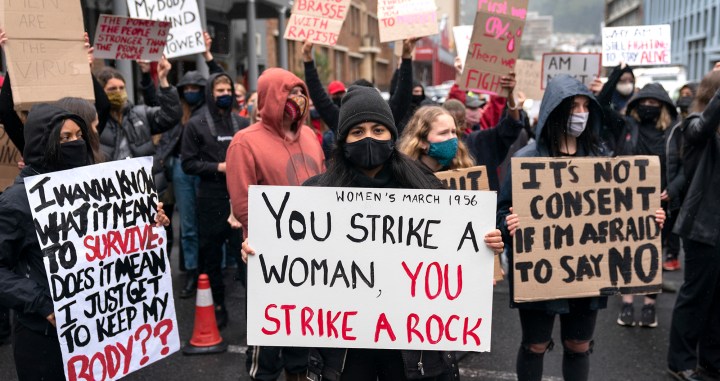LETTER TO THE EDITOR
The problem with President Ramaphosa’s call to mourn Covid-19 deaths and GBV victims at the same time

The response to Covid-19 was fast, awareness was created quickly and effectively – government accountability has improved. More active and robust digital and media strategies are being used to fight the spread of Covid-19. All these are strategies that should have been adopted long ago in the fight against gender-based violence.
South Africa finds itself dealing with a pandemic within a pandemic.
The country mourned Covid-19 and gender-based violence (GBV) victims from 25 to 29 November in accordance with a statement made by President Cyril Ramaphosa. Many saw this as a bold move and a win for efforts to address GBV, but it is rather disappointing.
Ironically, the mourning period fell within the international campaign known as 16 Days of Activism Against GBV. Almost daily we mourn the lives of women lost at the hands of men.
However, now that we are living in unfamiliar territory, we also mourn the lives lost due to Covid-19. Both are pandemics with different characteristics. The major difference is that Covid-19 is new and in some ways beyond our control.
GBV, on the other hand, did not just emerge overnight. It is a symptom of a patriarchy intentionally designed and reinforced by systems and people to preserve the dominance of men at the expense of women and gender non-conforming people.
The president’s announcement makes GBV a shadow pandemic compared with Covid-19, even though GBV has claimed more lives, created more disruption and lasted much longer.
We need to unmask the fact that GBV exists as a pandemic because South African culture allows it and often encourages it. A recent case in the Free State shows this. A captain at the Mafube Police Station was recently arrested for victimising a rape survivor while conducting his “investigation”.
He also allegedly manipulated the perpetrator’s girlfriend into having sex with him by promising to release her boyfriend on bail. This officer was still allowed to work in the Family Violence, Child Protection and Sexual Offences Unit, despite having a trail of rape accusations against him.
Mourning GBV alongside Covid-19 sends a message to the police captain in Mafube, and many other perpetrators, that GBV will always be secondary and not important enough to have special impactful efforts directed at it.
We can’t treat the two pandemics in the same way.
One noticeable difference is how we have treated them in terms of reporting and response time. The Covid-19 response was fast, awareness was created quickly and effectively, government accountability improved. More active and robust digital and media strategies are also being used to keep the public informed and to fight the spread of Covid-19.
All these are strategies that should have been adopted long ago in the fight against GBV, particularly the sensitisation and awareness strategies.
My concern is that, after the GBV mourning period, it will be back to business as usual. Women will still be violated and live in fear.
Furthermore, the mourning period takes five days away from the activism period, which I find shifts the focus away from GBV.
We have also seen from previous years that the situation on the ground remains unchanged after the activism period. For instance, police statistics show that a woman is murdered every three hours in South Africa; an alarming rate, which is higher than the global average.
Fortunately, or unfortunately, Covid-19 has presented us with an opportunity to reconfigure and redesign our society to be safe for everyone.
It is time that we address the lack of sensitivity towards GBV, especially because there is no society free of it. Interventions are needed to ensure that women do not return to the “normal” of being violated.
The underlying causes of GBV need to be addressed through response efforts supported by policy development. Most importantly, men’s attitudes towards women and girls need to transform, which will assist in stopping the perpetuation of violence against women.
If GBV was treated as the pandemic it is, women would not have to live in fear. If efforts could be put together to fight Covid-19, the same should apply to GBV. DM
Bonolo Mahlatsi is a master’s student in Sociology at the University of the Free State whose research interests lie in ecological and gender justice.




















 Become an Insider
Become an Insider
Comments - Please login in order to comment.